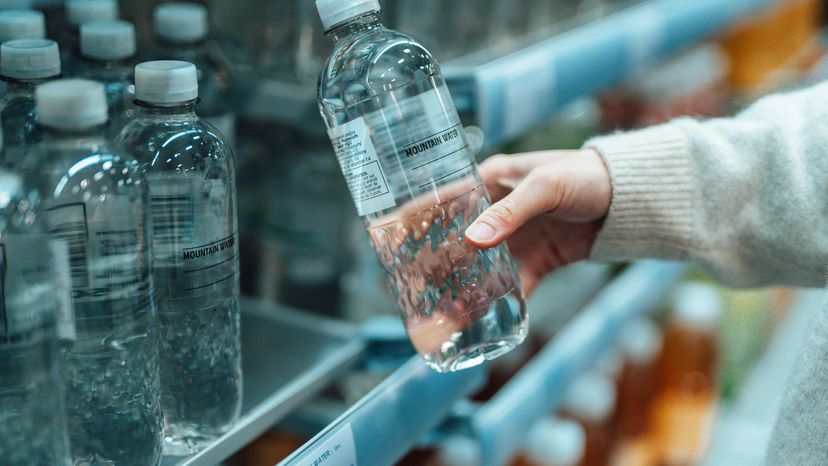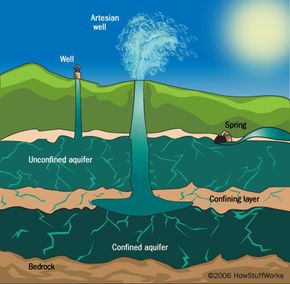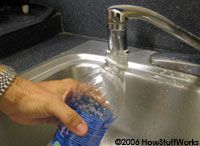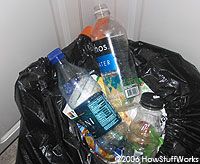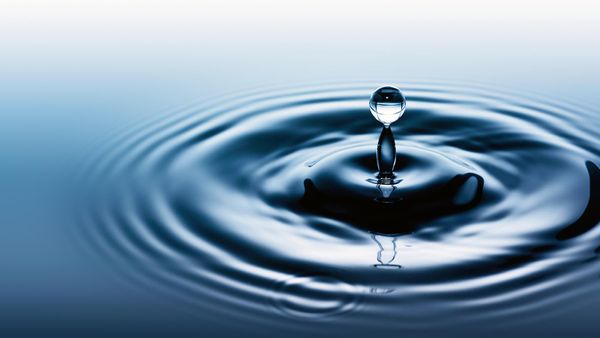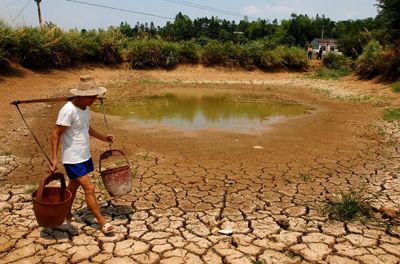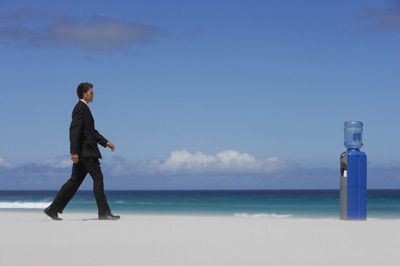While the FDA prohibits bottled water manufacturers from implying that their water is "safer" or "purer" than any other kind of water, implications are a difficult thing to quantify. In any event, many bottled-water drinkers believe they are drinking something that is healthier than tap water.
Health
In reality, all water is "healthy" as long as it doesn't possess high levels of harmful contaminants, which tap water does not.
Some bottled waters do contain fewer total dissolved solids than tap water, but most scientists agree that the levels of dissolved solids in tap water are not harmful to human health. And when it comes to dissolved solids, in certain cases and in some opinions, more is actually more.
People who drink mineral water presumably are drinking it because they believe the higher mineral count in the water is beneficial to their health. In the case of mineral water, it may just be that the water is healthier than tap water.
On the other hand, an interesting point to note is that many cities add fluoride to their water if it doesn't naturally contain the American Dental Association recommended amount (0.7 to 1.2 ppm) to help keep people's teeth healthy. So people who don't drink tap water may be getting less fluoride than people who do.
Dentists warn that this may lead to more dental problems in the long run for people who only drink bottled water that doesn't contain any or enough fluoride (some bottled waters leave the fluoride in or add it as a beneficial mineral after processing).
Of course, the healthiness of fluoride-enriched water is forever under debate, so "healthiness" ends up being a somewhat subjective quality. Purity, on the other hand, can be quantified.
Purity
If someone is looking for purity, choosing purified water may deliver the goods. With an industry standard of fewer than 10 ppm of total dissolved solids, purified water is pretty close to plain H20.
On the other hand, if someone defines "pure" as "safe," we're right back to the healthiness issue discussed above. Bottled water sources are typically tested for harmful contaminants once a week at most. Municipal water supplies are tested hundreds of times every month.
Tap water may not be perfectly clear, or it may have a slight chlorine aftertaste, but according to the Minnesota Department of Health, those are merely aesthetic qualities that do not indicate the water is unsafe.
And bottled water — even purified water — does not have to be completely free of contaminants. It simply has to have below the FDA-allowed and/or state-allowed level of certain contaminants.
Taste
So what we're left with is taste. Many bottled water drinkers report taste as the primary reason for their bias — they just think bottled water tastes better than tap water, end of story. In some cases, this is entirely likely.
Since many cities treat their tap water with chlorine to disinfect it, an aftertaste in tap water is pretty common. And some cities' tap water just tastes bad, even though it's perfectly safe, due to higher levels of certain minerals.
Regulatory Concerns
One of the most serious arguments leveled against bottled water relates to federal regulations, or the lack thereof. Some people believe that water bottled for the specific purpose of human consumption should face exactly the same regulations as municipal water intended for human consumption, whether the FDA regards it as a risky product or not.
The other main regulatory concern is the fact that FDA regulations only apply to bottled water shipped between states. If a company produces and sells its bottled water with the borders of one state, and that state is one of the 10 or so that does not regulate bottled water, that company's product is subject to no oversight at all. Unless it voluntarily adheres to the rules of a trade organization. Which is, well, voluntary.
Beyond safety regulations and general consumer misconceptions that may or may not be fueled by the marketing efforts of bottled water manufacturers, the other primary accusation against the industry can be summed up in two words: environmental nightmare.
Bottled vs. Filtered
Some people use filters like PUR or Brita to filter tap water at home. These filtering processes can achieve a similar level of purity to bottled purified drinking water, but filtering is much cheaper and doesn't have the negative environmental effects of bottling.
Brita reports that its most expensive filtering setup produces purified water at about 18 cents a gallon, compared to about $1 a gallon for the cheapest bottled water. The thing to look out for with filters is maintenance — if you don't change the filter regularly according to the manufacturer's instructions, contaminants might build up in it, causing your filtered tap water to actually be less pure than it was before you filtered it.
